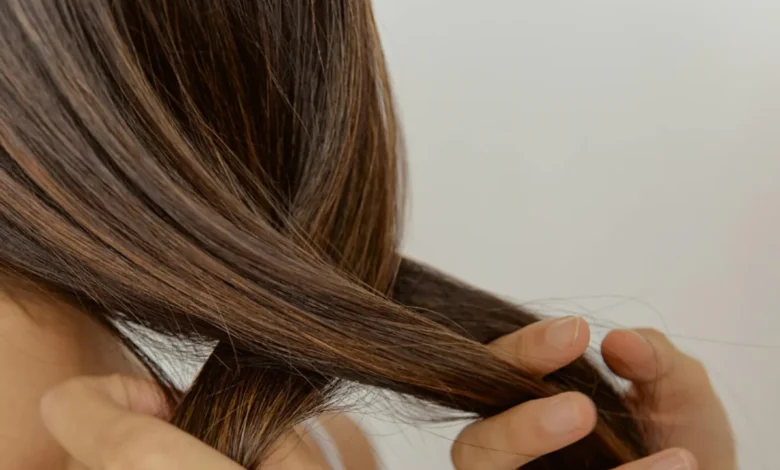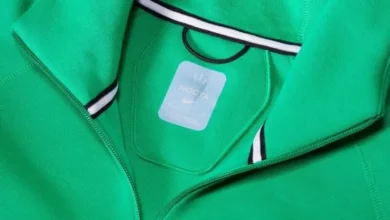Reviving Your Locks: Top Hair Care Strategies for Restoring Shine and Vitality

Welcome! This article is to help you learn essential hair care strategies that tackle damage and breathe new life into your locks, ensuring they look healthier and more lustrous than ever!
Understanding Hair Damage
Understanding hair damage is crucial for implementing effective hair care strategies. Hair damage typically results from a variety of factors including excessive use of heat styling tools, chemical processing like coloring and perming, and environmental stressors such as UV rays and pollution.
These elements can break down hair’s keratin structure, leading to brittleness, split ends, and dullness. Mechanical damage from rough handling during brushing or towel-drying can further exacerbate hair’s condition by causing breakage and frizz. Over-washing can strip away natural oils that protect and nourish the hair, while a lack of proper conditioning can leave hair unprotected and susceptible to additional damage.
By identifying the specific causes of hair damage, you can choose targeted treatments and adjust your hair care practices to effectively restore hair health and vitality, ensuring your locks remain strong, shiny, and resilient.
Daily Hair Care Routine
A well-tailored daily hair care routine is essential for maintaining the health and vitality of your hair. Here are key steps to include in your routine:
- Gentle Cleansing: Choose a sulfate-free shampoo that cleans without stripping hair of its natural oils. Wash your hair 2-3 times a week to prevent over-stripping of natural moisture, which is crucial for maintaining hair health.
- Tip: If you have oily hair, consider using dry shampoo on the roots on non-wash days to absorb excess oil.
- Thorough Conditioning: Always use a conditioner after shampooing to replenish moisture and protect the hair shaft.
- Tip: For extra hydration, use a leave-in conditioner or hair serum on damp hair, especially on the ends.
- Regular Detangling: Gently detangle your hair with a wide-tooth comb or a detangling brush starting from the ends and working your way up to prevent breakage.
- Tip: Detangle while the hair is damp with conditioner to ease out knots.
- Heat Protection: Before using any heat styling tools, apply a heat protectant spray to shield your hair from heat damage.
- Tip: Minimize the use of high-temperature settings on tools like straighteners and curling irons.
- Night Protection: Consider braiding your hair or using a silk pillowcase to reduce friction and prevent breakage while you sleep.
- Tip: A silk scarf can also help maintain hairstyles and reduce tangling for textured hair types.
Deep Conditioning and Masks
Deep conditioning and the use of hair masks are vital for restoring hydration, enhancing elasticity, and imparting shine to your hair, especially if it’s prone to dryness or damage. These treatments penetrate deeper into the hair shaft than regular conditioners, offering intensive nourishment and repair.
- Deep Conditioning Benefits:
- Provides intensive nourishment and hydration.
- Penetrates deeper into the hair shaft than regular conditioners.
- Essential for restoring moisture and improving hair texture.
- Weekly Hair Masks:
- Use hair masks once a week for optimal results.
- Look for ingredients like keratin, argan oil, or coconut oil.
- These key ingredients help rebuild the hair’s structure and lock in moisture.
- Enhanced Treatment Techniques:
- Apply the treatment and leave on for 20-30 minutes.
- For enhanced effectiveness, cover with a shower cap and apply gentle heat.
- Regular use can improve hair manageability and reduce frizz.
Diet and Hair Health
Diet plays a critical role in hair health, influencing its growth, strength, and appearance. Nutrient-rich foods can provide the building blocks for healthy hair, while a poor diet can lead to hair loss and lackluster strands. To support hair health from the inside out, focus on including these key nutrients in your diet:
- Protein: Hair is primarily made of protein, so adequate protein intake is crucial. Include lean meats, fish, beans, and legumes in your meals.
- Omega-3 Fatty Acids: These healthy fats, found in fish like salmon, flaxseeds, and walnuts, help keep your hair hydrated and prevent a dry, scaly scalp.
- Vitamins A and C: Both vitamins support sebum production, which acts as a natural hair conditioner. Brightly colored vegetables and fruits, such as carrots, sweet potatoes, spinach, and oranges, are excellent sources.
- Iron and Zinc: Iron helps carry oxygen to hair follicles, and zinc promotes hair growth and repair. Include red meat, fortified cereals, and whole grains.
Avoiding Harmful Practices
To maintain healthy hair, it’s crucial to avoid practices that can lead to damage and deterioration of hair quality.
- Minimize Heat Styling:
- Use heat tools sparingly to prevent weakening hair strands.
- Always apply a heat protectant spray before styling.
- Limit Chemical Treatments:
- Reduce the frequency of chemical processes like bleaching and perming.
- Opt for professional services to minimize damage.
- Avoid Tight Hairstyles:
- Steer clear of styles that pull tightly on the hair and scalp, such as tight ponytails or buns.
- These can lead to tension alopecia if worn frequently.
- Gentle Detangling:
- Use a wide-tooth comb or a detangling brush.
- Start detangling from the ends and work your way up to prevent breakage.
Advanced Treatments and Supplements
To further enhance hair health and address specific concerns, consider incorporating advanced treatments and supplements into your routine:
- Scalp Treatments: Regular use of serums or masks specifically formulated for the scalp can promote healthier hair growth by nourishing the hair follicles and balancing oil production.
- Keratin Treatments: These help to smooth and add shine to frizzy or damaged hair by temporarily sealing a liquid keratin and a preservative solution into the hair with a hair iron.
- Biotin Supplements: Known to support hair growth, biotin supplements can be beneficial, especially if your diet lacks sufficient nutrients.
- Omega-3 Supplements: These fatty acids are vital for maintaining hair health. Omega-3 supplements can help improve hair density and diameter, reducing hair loss.
Integrating these advanced options can significantly boost the health and appearance of your hair, especially when combined with a good hair care routine. Always consult with a healthcare provider before starting any new supplement regimen.
Thank you for joining us on this journey to healthier, more vibrant hair. For high-quality hair care products that can help you implement these strategies effectively, be sure to visit MyCareCloset. They offer a range of products tailored to meet your specific hair needs, ensuring that your hair not only looks great but feels healthy too.



